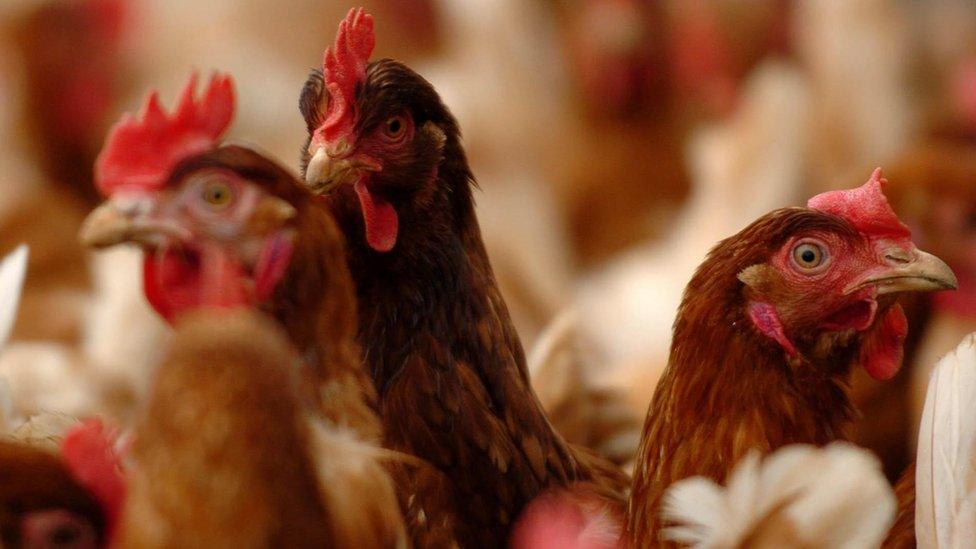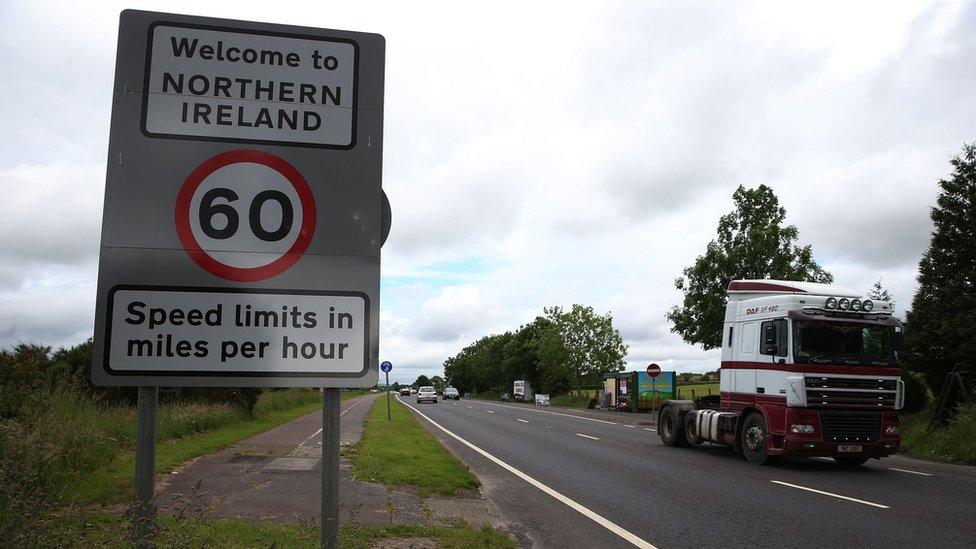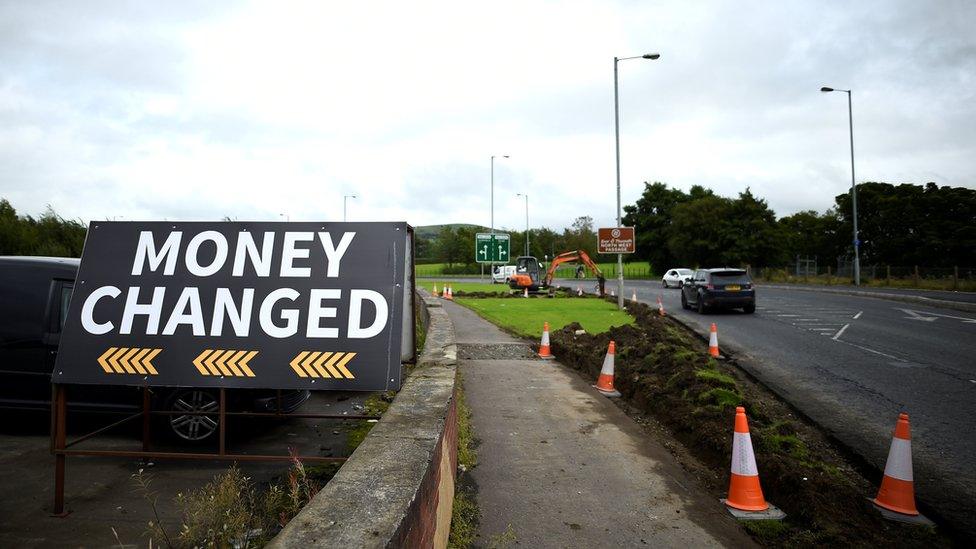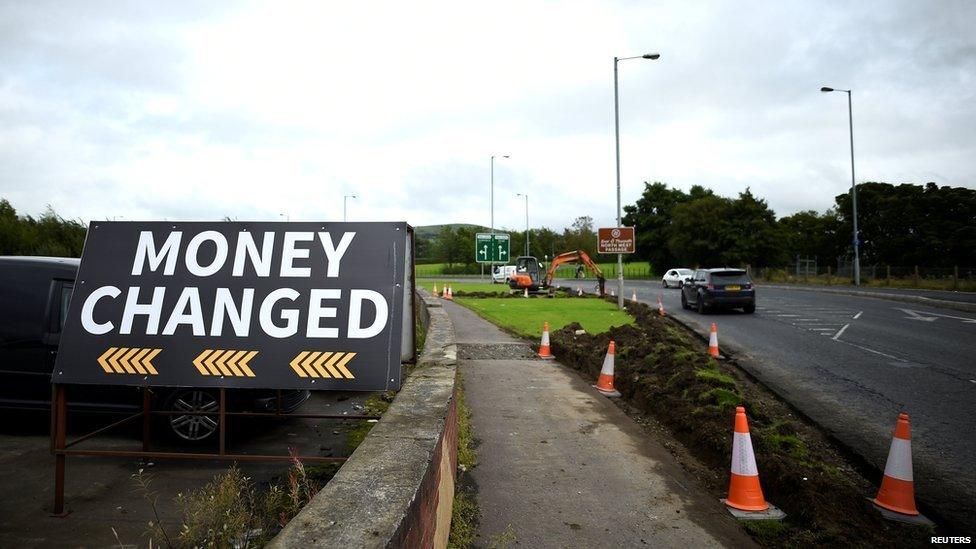Brexit: Why food regulations matter for soft Irish border
- Published

A zero-tariff trade deal between the UK and the EU will not be enough to avoid a hard Irish border after Brexit, David Davis acknowledged this week.
The Brexit secretary said there would also have to be a "regulatory arrangement" on agriculture and food.
That refers to the EU's strict rules on food and animal imports from "third countries".
Those are effectively countries that are outside the single market.
The rules mean that consignments of food or animals can only enter the EU through specified border inspection posts.
Those involve mandatory document checks and a significant proportion of consignments must also be physically checked.
The details can be found on page 81 of this manual, external produced by the government's Department for Environment, Food and Rural Affairs.
Soothing words
The UK will become a third country after Brexit and without a specific deal on food and agriculture that would mean inspections at the border.
That would be hugely disruptive to the many cross-border supply chains and would also necessitate a significant amount of new infrastructure.
It would be very far from the ambition of maintaining an invisible Irish border.
There were soothing words from the head of the Swiss customs service this week when he gave evidence to the Northern Ireland Affairs Committee.
Dr Christian Bock drew on his experience to map out a way to an invisible border in Ireland.
He described the need for deep co-operation between neighbouring customs authorities, inspections at premises away from the border, a trusted trader scheme and the use of number plate recognition cameras.
But what he did not mention and was not asked about was the political arrangement that allows for unimpeded trade in food with the EU.
'Limited scope for influence'
The Veterinary Agreement between Switzerland and the EU means that the Swiss follow EU rules on food safety and animal health almost to the letter.
The details are made clear by Switzerland's Federal Food Safety and Veterinary Office, external (FSVO).

Failure by the UK and EU to make a deal on food and agriculture could be hugely disruptive to suppliers
Switzerland must modify its laws in response to changes in EU legislation and must monitor third-country exports at EU-approved border inspection posts.
It has only limited influence in setting the rules, as the FSVO spells out: "Switzerland seeks to represent its position to the EU when legislation is being drafted and as scientific developments occur.
"It does this by participating in working groups and in the standing committee.
"Its scope for influence is, however, limited since Switzerland does not have voting rights."
The trade expert Samuel Lowe has pointed out that one area where the Swiss differ is they permit the importation of hormone treated beef from the United States.
These imports come with strict labelling and traceability requirements and, as a result, the EU does not inspect Swiss beef exports at the border because it trusts the Swiss not to act as a backdoor into the single market.
'Unique agreement'
The agriculture policy expert Prof Alan Matthews has published an useful overview of what will be required from any regulatory deal.
He points to the regulatory equivalence agreement for organic products that the EU has with Chile and the United States.
The EU will recognise organic certificates issued by those countries even though their organic standards are not the same as in the EU.
But this is a very limited deal - the EU has only been prepared to remove the requirement for border inspection with countries that have adopted its rules.
Switzerland and Norway are the most important examples.
Prof Matthews has warned that the difficulties in negotiating a regulatory equivalence agreement with the UK should not be underestimated.
"It would be a unique agreement, one which the EU has not granted to any other country," he said.
He thinks that a workable solution might involve constraining the UK's autonomy to change its regulatory standards, similar to the Swiss experience.
He acknowledges that runs counter to the notion that Brexit is about the UK taking back control but without a deep regulatory agreement border checks will have to be reintroduced.
- Published31 October 2017

- Published1 November 2017
